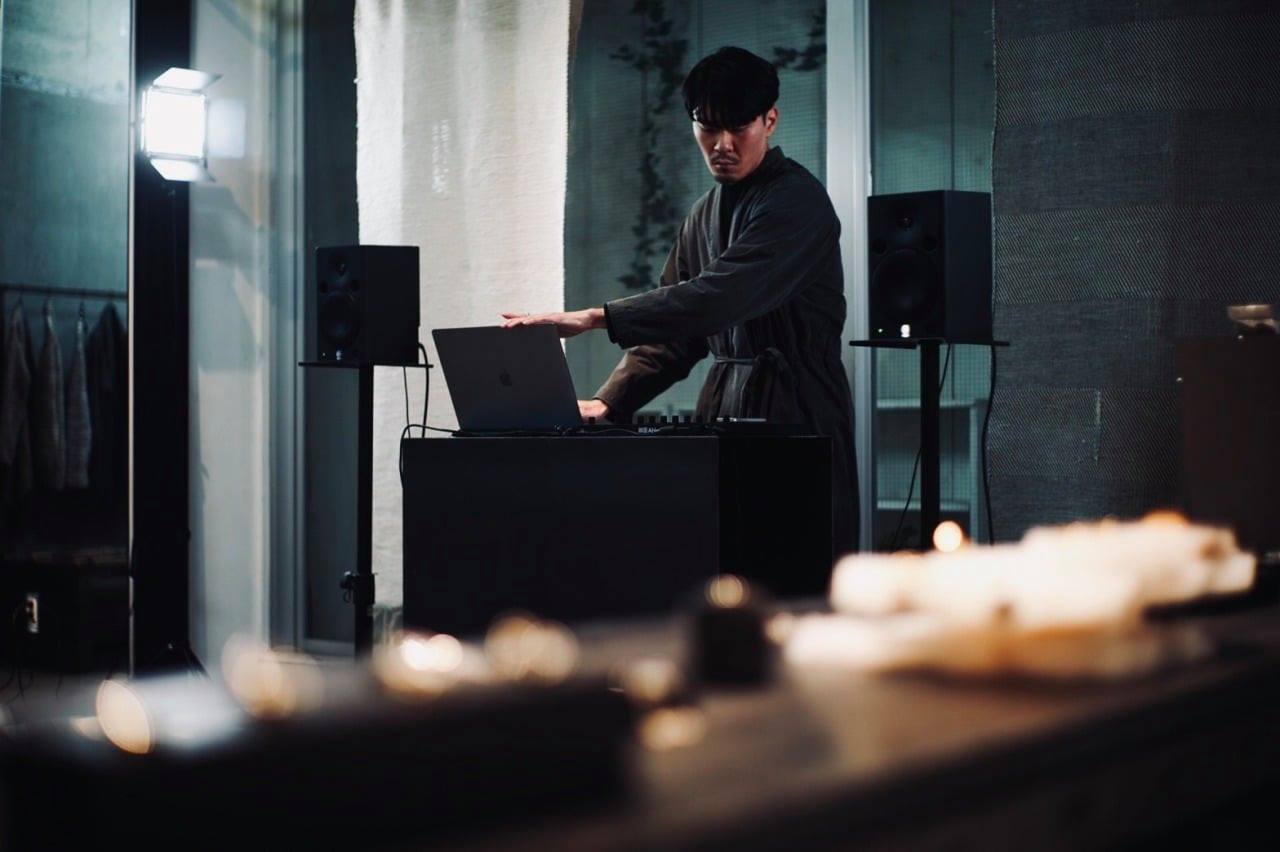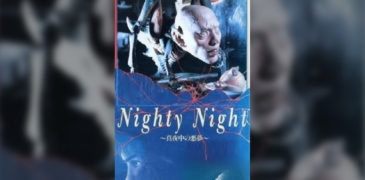
Meitei = 冥丁 – Kwaidan = 怪談
Daisuke Fujita or Meitei, is a well-known music producer in Japan who has been known to craft complex soundscapes to create musical experiences for his listeners. Today we are focusing on the album Kwaidan (released in 2018) itself having the same name as the iconic literary work, turned iconic film.

An experimental work focused on creating soundscapes to reflect the works that inspired it. At times ambient, the album is mostly unsettling in deconstructing traditional music to the point of lacking form. Consequently, the album offers only fleeting moments that the listener will be able to attach themselves too.
On this unfamiliar journey you are not alone, joined by a narrator, of sorts. However, the voice becomes an unwelcome companion, as his words become repetitious and ominous. It feels as if his words are guiding you into madness or spoken from a dark figure luring you in. Even when facing the language barrier, fans of Japanese media are bound to pick up the odd word as repetition of warped voices becomes uncomfortably familiar.
The album can best described as unnerving, as the sounds are never confrontational but speak to a sense of uncertainty to evoke a haunting aesthetic. It makes the experience a challenging one that not too many will willingly approach, many will also be hesitant to call this music or even enjoyable.
Myself? I appreciated the dark journey steeped in Japanese folklore. Particularly, I liked the reserved approach that created an atmosphere of fear in approaching things with uncertainty. The album captures a kind of ominous gloom with its repetition and fleeting moments of form, which is much more appreciated over shock value. However, it is not a journey I see myself taking very often as the sensation I got was rather disorienting.
It is hard to pick a ‘favorite track’ as overall flow dictates the feel of each entry. Although ‘Curio’ offers up a rather unsettling distortion of vocals on top of an already broken melody that perhaps best represents the depths of madness the album can capture.
Ultimately, for those who love to challenge themselves with music as a narrative tool, Kwaidan is a venture worth taking at least once.
Alone in the Woods – Kwaidan

Released in 2019, Alone in the Wood‘s Kwaidan takes a more classical exploration of the film in offering a more traditional take to the soundscapes. Consequently, the album is best described as easily listening, but with enough touches of eeriness to keep the listener drawn in.
It should be noted, for those who like to collect Vinyl, that the album got a rather wonderous presentation. You can check it out and here some samples here!
Pehr Henrik Norgen – Nine Kwaidan Ballads
A Finnish composer of classical, chamber and electro-acoustic music, Pehr Henrik Norgen released his composition of 9 pieces in 1990.
The mileage on this album is entirely on the audiences love of piano music, particularly pieces that are a bit more challenging in composition. If spooky Piano is your thing though, each track does illicit a sense of dread that speaks well to its inspirations.
Teams + Noah + Repeat Pattern – Kwaidan
Traveling a long on the guidance of a wispy voice, the 2018 release from Japanese label Flau is certainly the most pretty and listenable entry on this list. Offering up some delicate electronic flows punctuated by the aforementioned falsetto voice and little electron pops.
A really easy listen and probably my favorite out of the albums mentioned, however it is probably the weakest at capturing the vibe of Kwaidan. (To be fair, this was one album where I could not find a strong statement saying it was inspired by the works of Hearn or the film)
Final Thoughts
While this list is comprised pretty much solely of albums that take Kwaidan and put it into the title, the effect of horror and folklore is no exclusive to the particular tome. Undeniably, different artforms work to inspire artists in any medium, and cinema or literature can come to define music in different facets, lyricism, or sound.
Consequently, it would be foolish to say that Kwaidan from Lafcadio Hearn is unique in its influence in other mediums. Rather the work of Hearn has long given the world an insight into traditional Japanese folklore, culture and oral traditions of sharing tales. Regardless, it is undeniably neat to see how different artists interpret the words and feelings found within the macabre tales.
More Reviews:
Nighty Night: Midnight Nightmares is a 1986 independent Japanese horror anthology, directed by Hirohisa Kokusho. The film was certainly unrecognized upon its initial release, receiving an extremely limited VHS run… Inherit the Witch (2024), directed, co-written by, and starring Cradeaux Alexander, is an ambitious attempt at psychological horror through means of generational trauma. Filmed almost entirely with handheld cameras –… The found footage genre has long been a beloved niche among horror fans, staff here included. The format, while restrictive in budget, offers a creative outlet normally representative of a… Recently, the “adventure survival” thriller has seen a sizeable spike in popularity. Gone are the nastiness, the unbearable tension, the relentless bad luck and shaking-in-their-boots protagonists of survival classics like… “We say revenge is like a river, whose bottom is reached only when we drown.” So begins this dark tale of violence steeped in politics and folk horror. A low-budget… Techno-horror is a fertile subgenre. Since technology constantly evolves, so must our relationship to it. Our increasingly teach-reliant existence offers countless angles from which to tackle what are, essentially, cautionary…Nighty Night: Midnight Nightmares (1986) Film Review – Lost Body Horror Film
Inherit the Witch (2024) Film Review – An Overall Disappointment
Camping Fun (2020) Short Film Review – Found Footage Frights
Fall (2022) Film Review – It’s Lonely at the Top
Saloum (2021) Film Review – Genre-bending Senegalese Horror
DIGITAL VIDEO EDITING… (2020) Film Review | Learning to Kill Your Darlings (Unnamed Footage Festival 666)






